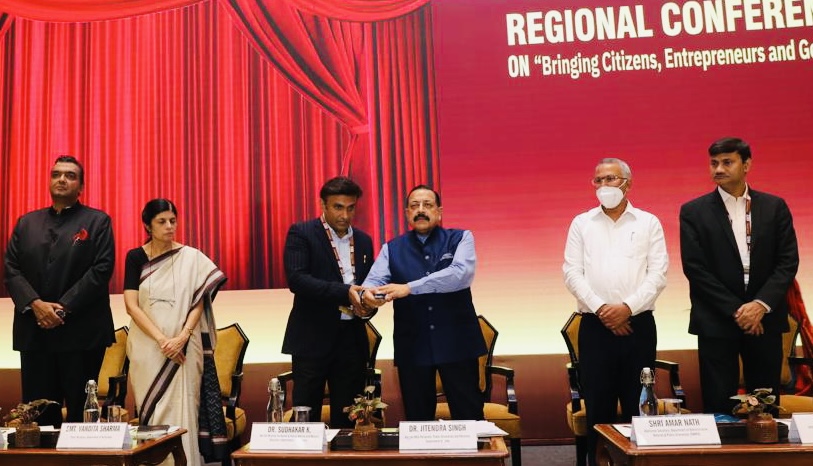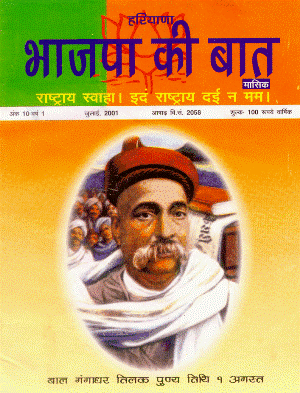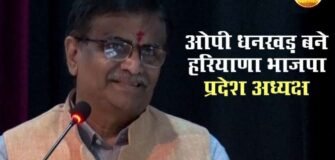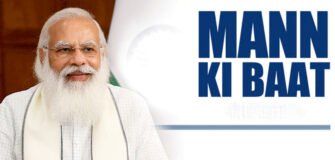Governance Reforms introduced by PM during the last eight years are actually social reforms aimed at achieving ‘ease of living’ » Bhajpa Ki Baat
Share

Union Minister of State (Independent Charge) Science & Technology; Minister of State (Independent Charge) Earth Sciences; MoS PMO, Personnel, Public Grievances, Pensions, Atomic Energy and Space, Dr Jitendra Singh said here today the governance reforms introduced by Prime Minister Narendra Modi during the last eight years are actually social reforms aimed at achieving ‘ease of living’ for the common man and a “level playing field” for the aspirational youth.
Delivering the valedictory address at the two-day Regional Conference on Governance in Bengaluru organized by DARPG and Karnataka Government, Dr Jitendra Singh said, the hallmark of Modi’s governance model is his capacity to take out-of-box decisions, break the taboos of the past and the capacity to convert government’s campaign into mass campaign on the basis of his courage, conviction and sincerity.
Referring to the theme of the conference, “Bringing Citizens, Entrepreneurs and Government Closer for Good Governance”, Dr Jitendra Singh listed a series of such reforms having wider social implications. The Minister recalled that within three months of taking charge in May, 2014, Prime Minister took the most revolutionary and path-breaking decision of abolition of attestation of certificates by gazetted officers instead promoting self-attestation, thus reposing faith in youth of India. Similarly, Narendra Modi had suggested the abolition of interviews during Independence Day address from the ramparts of Red Fort on 15th August 2015 and the same was implemented by DoPT from 1st January 2016 that paved the way for level playing field for all the candidates.
The Minister said, number of complaints in CPGRAMS increased from 2 lakh per year in 2014 to 25 lakh per year at present, which also reflects positively that here is a government which listens to citizens grievances promptly and addresses them. PM Excellence Awards focusing on flagship schemes rather on the individual profile of officers was another far-reaching governance reforms promoting healthy competition among 750 districts, the Minister added.
Dr Jitendra Singh informed the delegates that by the end of this year, the National Recruitment Agency (NRA) under DoPT is gearing up to conduct computer-based online Common Eligibility Test (CET) for recruitment to non-Gazetted posts. He added that to begin with, the test will be conducted in 12 Languages and gradually it will include all the 22 languages mentioned in the 8th Schedule of the Constitution, which will overcome the complaints of language bias coming from some southern states.
The Minister said, Prime Minister’s Mantra of Minimum Government, Maximum Governance means more involvement of citizens, innovation, use of latest techniques and transparency. He said, the ultimate aim of all governance models is to reach out to the last man in the last queue to empower him economically. He said, there is a need to try to adopt best practices from each other and implement them in our respective sectors, regions and states. He mentioned that the Government has made the States coupled with similar problems so that they can share their expertise and experiences related to similar issues and also success stories to learn from each other.
Dr Jitendra Singh said, based on the model of Aspirational Districts, DARPG has introduced the novel concept of District Good Governance Index. He said, Jammu and Kashmir was the first state where the District Index was released in January this year followed by Uttar Pradesh and now the work is on in Madhya Pradesh. He said, the District Good Governance Index is a milestone and it is expected that it will provide a robust framework for evidence-based assessment of the performance of all the districts in the states. The Minister also informed the gathering that in next phase the index will move to Block and Panchayat level.

Dr. K Sudhakar. Minister of Health & Family Welfare and Medical Education, Government of Karnataka in his address said, people-centric governance model is being followed in the state. Referring to success of “Ease of Doing Business”, he said that because of conducive business eco-system, 400 odd MNCs have set up units in Karnataka. Dr Sudhakar also referred to the RRR model of Recognise, Respond and Redress to empower the youth and the common man.
Secretary, DARPG, Shri V. Srinivas said, the conference is an effort to bring the Government and Citizens closer through various administrative reforms at centre, state and district level. The is being enabled by use of digital technology, pursuing next generation reforms and innovations with policy objective of “Maximum Governance, Minimum Government”, entailing Government process Re-Engineering, Universal access to e-services, excellence in digital initiatives at district level and excellence in adopting emerging technologies and use of ICT Management.
During the 2-day event, presentations were made in six sessions: (i) Administrative Reforms; (ii) The Outside in View: Private Sector & Good Governance; (iii) Replication of Best Practices; (iv) Administrative Reforms in States; (v) Benchmarking Governance and (vi) Start-ups and Experiments in Good Governance.
Related
(News Source -Except for the headline, this story has not been edited by Bhajpa Ki Baat staff and is published from a kamal sandesh feed.)
















